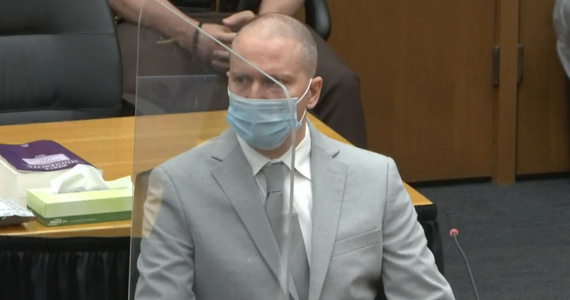He was convicted of the murder on April 20, and Chauvin was sentenced to 22.5 years in prison. The former policeman had 90 days to appeal.
Chauvin’s appeal is based on 14 allegations about the course of the trial, according to Reuters, which found court documents. Issues raised by the former constable include, among other things, refusal of a judge’s consent to move the trial to another location, refusal to remove a jury entirely, or improper and biased behavior by a jury.
Chauvin also filed for a stay of appeals proceedings pending a review by the Minnesota Supreme Court of his appeal against the decision to deny him his right to a public defender on appeal. The convict indicated that he did not have a lawyer to represent him in the appeal proceedings or a means to pay for it. Previously, Chauvin’s legal service was funded by the police union.
George Floyd was killed on May 25, 2020 in Minneapolis while being arrested for using a counterfeit $20 banknote at a convenience store. The cops overcame Floyd, who initially resisted. Prosecutors estimated that Officer Chauvin pressed his knee to the neck of the man who was tied to the ground for approximately nine and a half minutes. Floyd’s last words – “I can’t breathe” – became a slogan for numerous demonstrations against racism and police brutality in the United States and around the world after his death.








